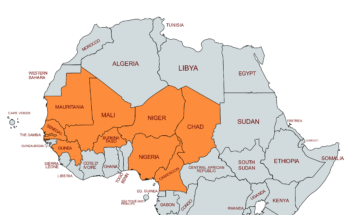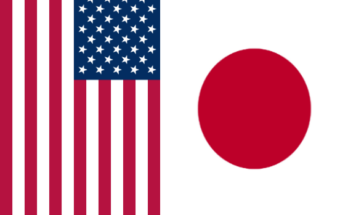By Nicole Auger, International Military Markets Analyst, Forecast International.
Yemen will make a formal request to join the Gulf Cooperation Council (GCC), according to a government spokesman. Yemeni leaders will present the plan for membership in Saudi Arabia this month.
Yemen has long sought greater integration with – and eventual accession into – the six-nation Gulf Cooperation Council. The six GCC states – Bahrain, Kuwait, Oman, Qatar, Saudi Arabia, and the United Arab Emirates – remain divided over Yemen’s request for membership, with Kuwait and Saudi Arabia consistently vetoing Yemen’s entry into the council. Worries over Yemen’s domestic climate (tribal culture rife with infighting), poor economy, rapidly growing population burdened with high unemployment, loose borders used for trafficking weapons and militants, and fledgling democratic structures (potential threats to the authoritarian sheikdoms) make GCC members hesitant to proffer membership in their group anytime soon.
Originally an economic pooling of Gulf nations, the GCC ultimately took the form of a military alliance in the face of regional threats emanating from Saddam Hussein’s Iraq and the Islamic Revolution in Iran under the Ayatollah Khomeini and his mullahs. Established in 1981, the GCC was meant originally as a common economic market, with a focus on common objectives, shared backgrounds, and similar political systems. An embryonic, multinational defense brigade code-named Peninsula Shield was launched in 1986 with about 5,000 troops. Over time, the Peninsula Shield brigade and the envisioned joint-defense apparatus began to collapse because of infighting and a lack of direction. But despite the hiccups associated with defense cooperation, the GCC remains a functioning entity in the areas of politics and economics.
Yemen has been attempting to gain accession into the GCC since 1996, but its sickly economic condition has caused GCC members to remain hesitant at extending full membership. Donor conferences have been organized and sponsored by the GCC, and Yemen has been invited into its councils of health, education, sports and culture, but no membership invitation has been forthcoming.
One idea floated in GCC circles has been the creation of a free trade zone with Yemen. For Yemen, such an idea represents an opportunity to expand trade with the GCC, as well as gain substantial inflows of financial aid and investment capital from the Gulf States. GCC membership would lend Sana’a a form of economic legitimacy that it is currently lacking. The Yemenis have been keen to stress historical and cultural ties to the Gulf States, often to little avail.
Saudi Arabia worries about the porous border it shares with Yemen, its democratic structure (a potential threat to the House of Saud), and its reputation as a breeding ground for Islamic extremists – especially due to recent events in which Houthi Shiite rebels successfully gained control of the Yemen capital in a coup, causing Yemeni President Abd Rabbu Mansour Hadi (along with his ministers) to resign from office. Because of the potential of an Iranian relationship with this Shiite group – a relationship that could evolve into a valuable destabilizing proxy element such as Tehran has skillfully cultivated with Hezbollah in southern Lebanon – Saudi Arabia was forced to begin military operations in Yemen in March 2015.
Kuwait, meanwhile, has yet to forgive Yemen for siding with Iraq during the 1990-1991 Gulf War in which Saddam Hussein’s invasion of Kuwait touched off a U.S.-led military response. And then there is the worry among GCC members of being deluged by large influxes of Yemeni migrant workers and how this would upset their own economies. Even GCC members such as Oman and Qatar, which favor extending membership to Yemen, impose heavy restrictions upon Yemenis entering their countries (a result again of the Yemeni government’s political stance during the 1990 Gulf War). This attitude seems to be subsiding as Gulf Arab nations consider ways in which to work more closely with Yemen rather than bringing the country into its fold as a full member.
Yet, the flip side of the equation for the GCC members is the potential for Yemen to devolve into a failed state, with its problems spilling over across their borders. The looming possibility that Yemen could turn into what Afghanistan was prior to October 2001 – a dysfunctional tribal state acting as a sanctuary for al-Qaeda – is not a scenario welcomed in Gulf capitals, nor is the idea of an outbreak of civil war in the increasingly dysfunctional state. Yemen is home to an increasingly established al-Qaeda presence, and its reputation for regional arms smuggling is notorious and grounded in reality. Then there is the problem that Yemen’s weak economy could implode and cause a spillover of migrants/refugees into neighboring Saudi Arabia and Oman.
While the Gulf States have worked to attract Yemen into their fold, ultimately they have to ask what Yemen offers besides a large body of cheap labor and a strategic geographic position. Perhaps these assets will prove to be enough for the GCC members to invite Yemen into their club, but for now the GCC would rather attend to Yemen from a distance.
For 50 years, Forecast International intelligence reports have been the aerospace and defense industry standard for accurate research, analysis, and projections. Our experienced analysts compile, evaluate, and present accurate data for decision makers. FI's market research reports offer concise analysis of individual programs and identify market opportunities. Each report includes a program overview, detailed statistics, recent developments and a competitive analysis, culminating in production forecasts spanning 10 or 15 years. Let our market intelligence reports be a key part of reducing uncertainties and mastering your specific market and its growth potential. Find out more at www.forecastinternational.com



